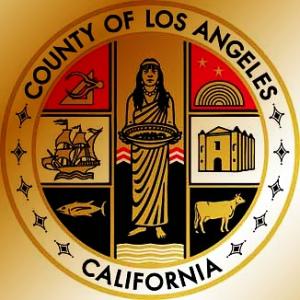 The Sierra Madre City Council voted 5-0 to approve a city protest over the “Clean Water, Clean Beaches Measure,” being proposed as a new parcel tax by the County of Los Angeles.
The Sierra Madre City Council voted 5-0 to approve a city protest over the “Clean Water, Clean Beaches Measure,” being proposed as a new parcel tax by the County of Los Angeles.
At the Jan. 8 meeting, City Manager Elaine Aguilar said Sierra Madre, just like all property owners within the city, received a county notice proposing an annual fee to pay for clean water programs. The fee would be imposed on all property owners within the Los Angeles County Flood Control District.
Because the proposed Clean Water fee is a “Proposition 218” fee, a protest process must be conducted before it can be put to a vote in a general election. Protest forms were included in the “Official Notice” sent out to property owners, and the deadline to submit these forms is before the end of the public hearing, which is Tuesday, Jan. 15.
As part of its protest to the Measure, the City Council designated Mayor Josh Moran as the city’s representative to authorize and submit the protest forms for each of the city-owned properties.
Sierra Madre’s fee on its 74 city-owned parcels is estimated to be at $16,919, according to the staff report. Aguilar said if the Measure were approved, the city would receive about $156,000 in funds to use for city clean water programs and reducing pollution from storm water and urban runoff.
Councilman John Harbedian said he thought the measure was good in theory, but that there is no drawn-out plan to where the money is going. “It’s just so flawed,” he said. “Sixty percent of the money goes to bureaucracy. It goes to establishing a watershed authority group, where, if you ask them what a watershed authority group is, they’re not quite sure yet.”
Sierra Madre resident Pat Alcorn agreed that the city should protest the Measure. “It’s going to cost the citizens, as well as the city, a lot of money, and right now we can’t afford it,” she said during public comment. “I’m for clean water, but not for establishing another bureaucracy.”
However, city officials were not confident that enough protest forms would be submitted throughout the county by Tuesday’s deadline.
“The area that is involved isn’t just Sierra Madre; so the chances of them getting 51 percent in protests is minimal,” said Aguilar. “So most likely this will end up going to a vote anyway.”
Councilman John Capoccia raised concerns over what a ‘protest vote’ could mean to the city, especially when considering that the city must eventually comply – and under fiscal circumstances when there is no alternative for funding.
“Are we putting ourselves in a position that we are basically killing our own ability to comply by voting this down?” he asked. “Because everyone on the planet knows that you can’t do this out of existing funds. I’m okay with protesting it now, but we need to think about this hard when it does come to a vote, and hopefully there will be some adjustments to what was proposed when it actually gets to a vote.”
According to a statement by Supervisor Don Knabe, of Los Angeles County’s Fourth District, if a majority protest of the parcel owners throughout the county has been received at the public hearing on Jan. 15, then the item will be rejected. However, if the protest fails, the Measure is currently scheduled to go to the second step, which could be a mail-in ballot next spring.
Peter Herzog, from the Commercial Real Estate Development Association, said in his article for FoxandHoundsDaily.com that there is a huge regulatory system already in place to address water quality issues. Such agencies include the Federal Clean Water Act, the State Clean Water Act, as well as Regional Water Quality Control Boards that create regulations governing water runoff, he said.
But most disturbing is Herzog’s claim that there is absolutely no indication of how the $270 million a year that the tax will take out of the economy will be spent. “Not one potential project is referenced,” Herzog wrote. “It is specifically stated the tax must be passed first, and then they will figure out behind some closed doors how to spend the money. Just trust us. Really?”
What the official notice does specify is that the proposed clean water fee “would generate over $200 million annually in dedicated funding for reducing pollution from stormwater and urban runoff in Los Angeles County waterways,” while basing that fee on “the average amount of runoff that properties generate, based on parcel size (but not property value) and land use classification, such as whether the property is residential, commercial, industrial or undeveloped.”
As the governing body of the Los Angeles County Flood Control District, the Board of Supervisors will hold its public hearing on Tuesday, Jan. 15 at 9:30 a.m. at the Board of Supervisors Hearing Room, Kenneth Hahn Hall of Administration, 500 West Temple Street, Los Angeles, Ca. 90012.
Residents who have any questions on the specifics of the Measure itself are urged to call (800) 218-0018 or visit www.lacountycleanwater.org.

